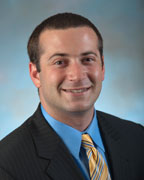Debt is a crippling proposition; it can be the demise of a center, but in some circumstances taking on low-interest debt and managing it effectively can be good for a center's bottom line.
Stuart A. Neiberg, a partner at Delray Beach, Fla.-based HealthCare Appraisers, shares his thoughts on good and bad debt.
Question: What is the difference between good debt and bad debt?
Stuart Neiberg: There definitely is a difference between good debt and bad debt. With any business, there is what's called an optimal capital structure. You want to find the point where your financing is comprised of a certain proportion of equity financing and debt financing, which really maximizes the value of a business. Ideally, under an optimal capital structure, the business would maximize its use of good debt for financing.
An example of good debt would be if you operate an equipment-intensive ASC. It might make sense to use some sort of financing or capital lease arrangement for technical equipment and make principal/interest payments every month. It would be cheaper to make those payments every month, especially with the current low interest rate environment, instead of contributing a significant amount of cash up front. You can make your money work for itself.
The idea of financing a piece of equipment on a low interest bond instead of spending money in an initial shot is good debt.
Q: What is an example of bad debt?
SN: Like any prudent business owner, one may utilize a line of credit to fund short-term losses. Bad debt occurs when an entity cannot generate enough cash, likely as a result of not collecting accounts receivable. In turn, the entity needs to borrow against the line of credit because of the working capital deficit.
Q: How much good debt can a center retain while having a positive operating budget?
SN: I think it varies for every center depending on the strength of their relative cash flow. If a center has stronger cash flows, they can likely support higher debt levels. Another factor is the level of fixed assets and accounts receivable a center has to leverage and how favorable the interest rate structure may be.
It has to be considered on a center-by-center basis.
Q: What can administrators and owners do to reign in their bad debt?
SN: Administrators want to be able to maximize cash flow with the use of short-term assets and liabilities. The goal would be to collect accounts receivable quickly and prolong paying off certain expenses without incurring unnecessary penalties.
A surgery center would want to have the cash in house to finance its operations (and make distributions to owners) and not have to take on debt or draw lines of credit. If a center can maintain a positive cash flow, bad debt can be limited.
Q: In this day and age, do centers still have to fail because of debt?
SN: We have seen plenty of sales fail because of debt; however, we are able to utilize unique valuation approaches to determine the value of these centers.
In many cases, surgery centers want to sell shares of equity to physicians or management companies. To determine the amount of equity in a center is a simple accounting formula of assets - liabilities = equity. What happens if the center has taken on so much debt that, all of a sudden, they have more debt than what the assets are worth? It is not possible for equity to be negative in these businesses and to pay a physician to take an equity position. Thus, we use a relatively complex valuation model to estimate this value.
Q: What is the number one thing you think all ASC owners and administrators need to know about debt?
SN: A lot of time and analysis should be spent with the center’s financial and operational reports to determine an optimal capital structure. One has to consider what the ideal level of debt should be in order to avoid overburdening the business while also assessing the level of debt its cash flow can handle.
Q: What kind of services can HealthCare Appraisers offer to an ASC?
SN: In addition to valuation services for transactions, estate planning and litigation support, we offer all kinds of consulting analyses. We can help centers with operational effectiveness; benchmarking to the industry; and determinations of optimal capital structure.
More articles on healthcare:
Healthcare predictive analytics market to surge to $19.5B by 2025 — 6 things to know
Celeste Carole to manage Finger Lakes Surgery Center: 3 notes
.30 things that happened in November for ASC leaders to know

